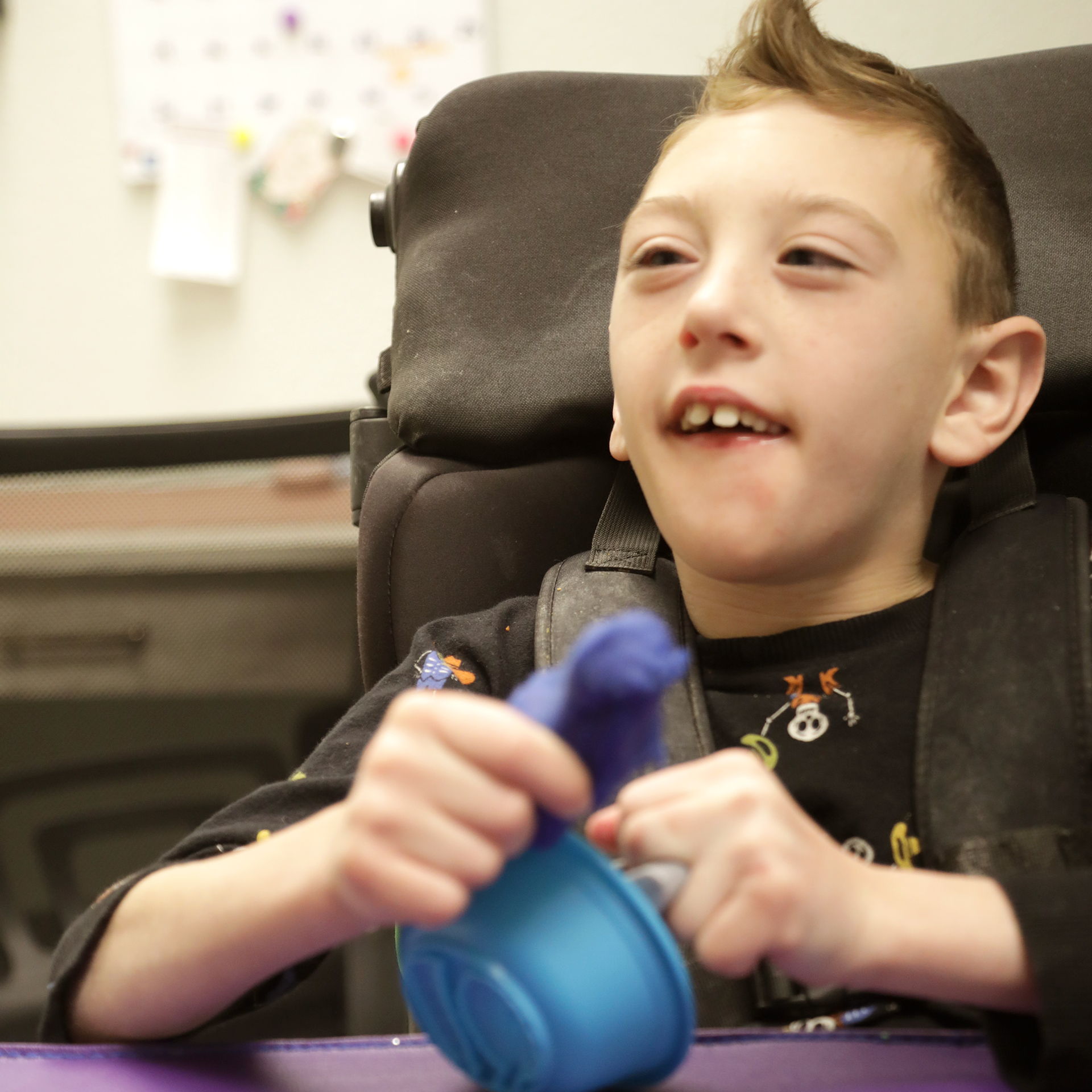Is Tom Cruise Autistic?


Examining the Facts Behind Speculation
In recent discussions, curiosity has arisen about whether Tom Cruise is autistic. This speculation is often fueled by the influence of media portrayals, especially the film 'Rain Man.' However, understanding the truth requires examining credible information, the nature of autism, and how media representations shape perceptions.
The Role of 'Rain Man' in Autism Awareness

Impact of the film 'Rain Man' on public understanding of autism
The movie 'Rain Man,' released in 1988, has had a profound influence on how the general public perceives autism. Starring Dustin Hoffman as Raymond Babbitt, an autistic savant, the film brought the condition into mainstream consciousness. Its widespread popularity and critical acclaim helped raise awareness, making autism a recognizable term for many people who previously had little exposure to the spectrum.
The film's success extended beyond entertainment; it sparked discussions and increased curiosity about autism, leading to greater acceptance and understanding in society. Many viewers became more empathetic towards individuals with autism and their families. Overall, 'Rain Man' played a pivotal role in changing perceptions and encouraging support for autism-related causes.
Portrayal of Raymond Babbitt as an autistic savant
Dustin Hoffman’s portrayal of Raymond Babbitt is often remembered as a defining feature of the film. Hoffman prepared extensively by studying individuals with autism, including those with savant abilities, to authentically represent Raymond’s character. Raymond was depicted as having extraordinary memory skills and calculations, which are characteristic of savant syndrome.
The character of Raymond was based on real individuals like Kim Peek and Bill Sackter, who exemplified savant talents. Although these portrayals contributed topublic recognition of savant syndrome, they also simplified the broader spectrum of autism. Raymond's character is a blend of autism and savant skills, an intersection that is actually rare in the autism community.
How the film contributed to awareness and stereotypes about autism
While 'Rain Man' was instrumental in increasing awareness, it also inadvertently reinforced stereotypes. The film tends to depict autism as primarily involving savant skills, which is not representative of most individuals on the spectrum. Autism Spectrum Disorder (ASD) is highly varied, with each person experiencing a unique set of traits and challenges.
The portrayal led to misconceptions that all autistic individuals possess extraordinary talents, overshadowing the diverse realities of the spectrum. This stereotype has persisted, affecting how society views and interacts with people with autism.
However, the film's influence was undeniable. It opened doors for dialogue, funding, and research focused on autism. It also inspired many families and individuals to seek understanding and acceptance,
| Aspect | Description | Additional Notes |
|---|---|---|
| Popularity and Impact | Increased public awareness and empathy for autism | Boosted donations and advocacy |
| Portrayal and Representation | Focused on a single type of autism involving savant abilities | Oversimplified the diversity of ASD |
| Stereotypes and Misconceptions | Reinforced the idea that all with autism are savants | Created unrealistic expectations |
| Influence on Media and Perception | Led to more autism portrayals, both accurate and stereotyped | Encouraged more nuanced portrayals |
Autism is not a disease or illness but a neurodevelopmental variation. Individuals with ASD deserve respect and support regardless of their abilities or challenges. The film 'Rain Man' remains a cultural milestone—an influential piece that both enlightened and misled. It underscores the importance of ongoing education to better understand the vast spectrum of autism.
Stereotypes and Misconceptions—Separating Fact from Fiction

What are common media stereotypes about autism, such as savant skills and social difficulties?
Many portrayals of autism in movies and TV shows tend to focus on exaggerated characteristics, especially the idea that all autistic individuals are savants with extraordinary abilities. Films like 'Rain Man' have popularized the notion that people with autism necessarily possess exceptional skills such as perfect memory or unique talents. Additionally, media often depict individuals with autism as emotionally detached or socially inept, reinforcing a narrow and often misleading image.
In reality, autism Spectrum Disorder (ASD) covers a wide range of conditions, with each person experiencing a unique set of strengths and challenges. Not everyone on the spectrum has savant skills, and many are quite capable socially, but may struggle in specific communication or sensory areas.
How do these stereotypes influence public perception?
These simplified or sensationalist images can lead to misunderstandings about autism, causing the public to believe that all autistic people are star performers with rare abilities. This can create false expectations and may make it harder for individuals with autism who do not fit this stereotype to be understood or accepted.
Moreover, such stereotypes can foster misconceptions that autism is something to be 'fixed' rather than appreciated as a different way of experiencing the world. The portrayal in 'Rain Man,' albeit influential, has contributed to a narrow view that can overshadow the diversity of autism.
Why is accurate representation and understanding of autism important?
Accurate media portrayal helps promote a more nuanced understanding of what it means to be autistic. It encourages acceptance and respect for individual differences. As awareness grows, so does the push for authentic representation—autistic actors and consultants are now increasingly involved in creating content that reflects real experiences.
Understanding that autism is a spectrum that encompasses many valid ways of functioning and thriving is essential. Each person on the spectrum deserves recognition for their unique personality, skills, and needs.
Below is an overview of common stereotypes versus actual facts about autism:
| Stereotype | Actual Fact | Impact of Stereotype |
|---|---|---|
| All autistic people are savants | Most are not; savant syndrome is rare | Creates unrealistic expectations and neglects diversity within autism spectrum. |
| Autistic individuals are emotionally detached | Many form deep emotional relationships | Overlooks the emotional capacity and social abilities of many on the spectrum. |
| Autism is a disease that needs curing | Autism is a spectrum, not an illness; it’s a different way of experiencing the world | Promotes understanding and acceptance rather than fear or attempts to 'fix' autism. |
Clarifying misconceptions about celebrities and autism claims
Specifically addressing rumors about Tom Cruise, it is important to note that there is no credible evidence supporting claims that he is autistic. The association with autism largely stems from his role in 'Rain Man,' but this does not imply any personal diagnosis. The film's purpose was to increase awareness, not to suggest that the actors or individuals connected to them are autistic.
In summary, awareness and accurate information help combat stereotypes, showing that autism is diverse and individual. Respect and understanding should guide perceptions, moving beyond simplified portrayals to appreciate each person’s unique experience.
Understanding Autism and Its Spectrum
How does autism vary among individuals?
Autism Spectrum Disorder (ASD) encompasses a wide range of presentations, with each person experiencing unique challenges and strengths. Some individuals may have significant difficulties with communication and social interactions, while others may excel in specific areas like memory or mathematics. The spectrum recognizes this diversity, emphasizing that no two individuals with autism are exactly alike.
For example, Raymond Babbitt, portrayed in Rain Man, was depicted as having both autism and savant abilities, a rare combination. Most people with autism do not possess such extraordinary skills but face different, often less visible, challenges. Autism's variability means that support and interventions must be tailored to each person’s specific needs.
Why can assumptions about autism without clinical diagnosis be misleading?
Autism is a complex neurodevelopmental condition that cannot be accurately diagnosed based on stereotypes or media portrayals alone. Many features shown in films like Rain Man are exaggerated or mythologized and can lead to misunderstandings.
Medical diagnosis involves careful assessments by qualified professionals, who consider a person’s developmental history, behavior, and communication patterns. Relying on assumptions or media stereotypes can result in misjudging an individual’s abilities and needs.
What has been the impact of Rain Man on public awareness?
The film Rain Man significantly increased awareness about autism in the late 1980s and early 1990s. It introduced many viewers to the idea of autism and savant syndrome, even though the portrayal was somewhat stereotyped.
Dustin Hoffman’s interpretation as Raymond Babbitt was critically acclaimed and brought attention to the condition. The film’s popularity helped foster conversations and understanding, encouraging society to be more accepting and inquisitive about autism.
The ongoing conversation about stereotypes and representation
Despite its positive influence, Rain Man also contributed to some misconceptions. The portrayal suggested that most autistic people are savants, which is not true for the majority. Autism is a spectrum with diverse manifestations beyond extraordinary talents.
It remains important to recognize that autism is not a disease or illness that requires curing, but a different way of experiencing the world. Respect, understanding, and accurate information are essential to support individuals across the spectrum.
| Aspect | Description | Additional Notes |
|---|---|---|
| Spectrum Diversity | Autism varies widely among individuals | Some have difficulties in social communication, others excel in specific skills |
| Stereotypes | Media portrayals often focus on savant abilities | Most autistic people do not have such extraordinary skills |
| Diagnosis | Clinical assessment is necessary | Based on developmental history, behavior, and communication |
| Public Perception | Influenced by films like Rain Man | Can lead to misconceptions about autism |
| Respect and Support | Fundamental for all autistic individuals | Tailored interventions and societal acceptance |
Understanding autism requires appreciating its diversity and rejecting oversimplified stereotypes. Recognizing each individual’s unique profile promotes respect and better support for the entire spectrum.
Conclusion: The Importance of Respect, Accuracy, and Awareness
Respecting individuals on the autism spectrum
Understanding and respecting people with autism is essential. Autism Spectrum Disorder (ASD) is highly diverse—each person experiences the condition differently. It's crucial to recognize their unique qualities and treat everyone with dignity. The portrayal of Raymond Babbitt in 'Rain Man' helped many see the humanity of individuals with autism, fostering empathy and awareness.
Avoiding stereotypes and misinformation
While 'Rain Man' significantly raised awareness, it also contributed to stereotypes—particularly the idea that all autistic individuals are savants. In reality, most people on the autism spectrum do not have extraordinary skills, and their experiences vary widely. Spreading accurate information prevents misconceptions that can hinder understanding and acceptance.
The societal impact of accurate representation
Media depictions influence public perception greatly. When portrayals are nuanced and accurate, they promote inclusivity and respect. Conversely, stereotypes can lead to misjudgments and discrimination. 'Rain Man' played a dual role by increasing awareness but also by reinforcing some stereotypes.
Are rumors or claims about Tom Cruise's autism status accurate?
Rumors and claims suggesting Tom Cruise is autistic are not supported by credible evidence. While the film 'Rain Man,' featuring Tom Cruise and Dustin Hoffman, dramatically raised awareness about autism, its depiction is considered outdated and somewhat stereotypical within the autism community. The portrayal focused on a specific form of autism associated with savant abilities, which does not encompass the full spectrum of experiences. No verified information or medical diagnosis has been made public about Tom Cruise having autism. Therefore, these claims lack credible support.
| Aspect | Details | Additional Notes |
|---|---|---|
| Main Actors in 'Rain Man' | Dustin Hoffman as Raymond, Tom Cruise as Charlie | Highlighted autism and savant syndrome |
| Impact on Public Awareness | Increased understanding of autism, but stereotypes persist | Boosted discussions about ASD |
| Limitations of the Portrayal | Focused on savant ability, not representative of most individuals with autism | Can contribute to misconceptions |
| Responsible Representation | Needs nuanced and accurate portrayals that reflect diversity of the spectrum | Essential for fostering respect and acceptance |
This overview underscores the importance of respectful, informed, and accurate portrayals of autism in media. Such efforts help society move toward greater understanding, acceptance, and support for all individuals on the autism spectrum.
Fostering Understanding and Respect
In summary, there is no credible evidence to support that Tom Cruise is autistic. While media portrayals like 'Rain Man' have played a significant role in increasing autism awareness, they often relied on stereotypes that do not accurately reflect the diversity of autistic experiences. It is crucial to approach such topics with sensitivity, respecting individual privacy and the complexity of neurodiversity. Promoting accurate representations and factual information helps dismantle myths, fosters understanding, and encourages societal acceptance of all individuals on the autism spectrum.
References
- 13 Facts About Rain Man - Larrylambert - Medium
- Rain Man - Wikipedia
- Stereotypes, misinformation about autism has harmful effects
- Cruise Finds Himself at Sea After Antipsychiatry Tirade
- Rain Man at 30: damaging stereotype or 'the best thing that ...
- Rain Man and Autism - Creased Puddle
- A look back at the movie Rain Man and how our views of autism ...
- Rain Man at 30: damaging stereotype or 'the best thing that ...
- A look back at the movie Rain Man and how our views of autism ...
- Stereotypes, misinformation about autism has harmful effects
Recent articles

What to Expect at Your First Therapy Session
Discover what your child’s first therapy session looks like, from rapport building to goal setting, and how families can feel confident starting care.

Celebrating Small Wins: How Therapy Helps Kids Build Confidence All Year Long
Learn why small wins in therapy matter, how they boost your child’s confidence, and simple ways families can celebrate progress all year long.

Empowering Missoula Children to Grow With Confidence and Connection
Learn how ABA therapy in Missoula helps children build communication, independence, and confidence through personalized, family‑centered support at Advanced Therapy Clinic.

Compassionate Pediatric Therapy in Butte, Montana
A welcoming place where every child’s potential is celebrated

How Pediatric Therapy Helps Kids Thrive across Montana and Wyoming
A supportive guide for families exploring therapy options in Billings, Butte, Missoula or Sheridan.

How to Choose the Right Pediatric Therapy Clinic in Billings, Montana
A Parent‑Friendly Guide To Finding The Best Support For Your Child

